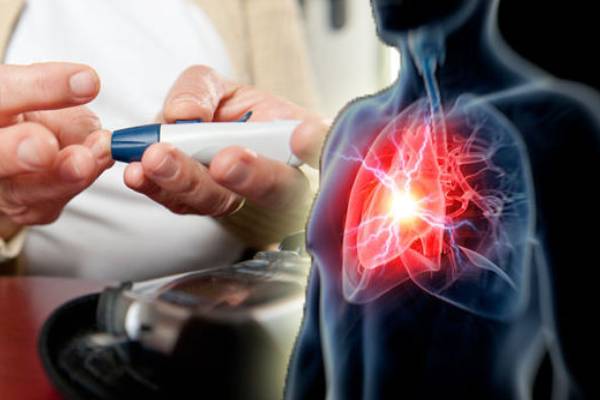
Diabetes is characterized by a group of disorders caused due to an increase in the amount of glucose in the bloodstream. It can either be due to the failure of the pancreas to produce more insulin(diabetes mellitus) or the body cells do not respond properly to the hormone. It can also be inherited, where if the mother has diabetes, the infant is most likely to get diagnosed with diabetes later in the future
Types Of Diabetes
The types of Diabetes include :-
In Type 1 diabetes your immune system attacks and destroys those cells in your pancreas that make insulin. Type 1 diabetes is more common in young children and young adults but can occur at any age. If not diagnosed on time, it can form blood clots as well as high blood pressure and high cholesterol. Over time it can affect major organs of the body including the heart, blood vessels, nerves, eyes, and kidneys. This increases the force of blood through the arteries and can damage artery walls. This stops the supply of oxygen to the heart and can cause a heart attack.
In Type 2 Diabetes, your body does not make or use insulin well. There is no definite age for developing this condition. It can happen at any age, even in childhood. Type 2 Diabetes is the most common type of diabetes. High blood sugar levels, can cause damage to the blood vessels and nerves that control them. Also, if the person's low-density lipoprotein is too high, then it can build fatty deposits of plaque in the arteries, creating blockages and causing part of the heart muscles to die.
Diabetes that occurs when a woman is pregnant is called Gestational Diabetes. Most of the time, this condition can be cured after the baby is born. Women with a history of diabetes during pregnancy were as twice as likely in mid-life to develop calcium in heart arteries, a strong indicator of heart disease. Gestational diabetes can affect the fetus's heart health too, causing thickening of the fetus's heart muscles, a condition known as hypertrophic cardiomyopathy which causes rapid breathing and shortage of oxygen in the fetus's heart muscles.
How Does Diabetes Lead To Cardiovascular Disease?
The hormone insulin produced by the pancreas is responsible for the absorption of food in the intestine and storage of glucose in the muscle and liver(glucose breaks down into glycogen). If glucose is not absorbed by the body cells or stored properly in the liver and muscle, then this might result in an increase in glucose levels in the bloodstream. The high-density lipoprotein is good for the heart since it helps in removing cholesterol deposits from the coronary arteries and transports them to the liver, which then removes them from the body. The low-density lipoprotein transports cholesterol from the liver to other tissues and cells, which use this as energy. If low-density lipoprotein is higher than the high-density lipoprotein Low-density lipoprotein, along with triglycerides, gets deposited in the arterial wall. This causes a slight injury in the walls and to heal, platelets travel to that area which forms blood clots around the area(thrombosis).
Gradually others substances that flow along with the bloodstream like calcium, sodium, glucose, and other substances stick to the walls. All these substances combine with the fatty deposits to form 'plaque'. This substance hardens and if cracks, platelets reach the area, forming more blood clots, resulting in narrowing of the blood vessels. If the blood supply to a heart muscle is very low, it ruptures the entire pumping system of the heart, which includes blood vessels, arteries, capillaries, and veins. Symptoms of a heart attack include chest pain, shortness of breath. In some situations, the skin turns blue since the organs of the body are not getting enough blood.
Risk Factors
Signs And Symptoms
Further Complications
Prevention And Treatment
The faculty of Dr. Swapnil Mate's Cardiology clinic includes experienced cardiologists, cardiac surgeons, cardiac imaging specialists, a preventive cardiology team, experienced pediatric cardiac surgeons and assisting surgeons, physical therapists, nutritionists, geneticists, child-life specialists, and a group of pathologists who run by tests and give the proper cause of diseases. The cardiologists and surgeons recommend the ideal surgery to the patients. They mention the advantages and risks associated with the surgeries they plan to do on them. Together, they provide extensive care to mothers and children, providing services that cater to their needs. Consult Dr. Swapnil Mate for the best medical assistance.
